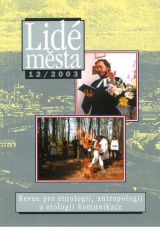Profanace posvátna a odkouzlení světa.
Rouhačství a svatokrádež mezi „magickým světem" tradiční Evropy a na prahu občanské společnosti
DOI:
https://doi.org/10.14712/12128112.4328Abstrakt
The paper deals with the question of decriminalization of of blasphemy and sacrilege in 18th century France, Habsbourg monarchy (mainly Bohemia and Tuscany) as principal forms of violation of sacred. The decriminalization or blasphemy and sacrilege reveals the transforming attitudes of European society face lo sacred material and immaterial values. l l1ave. I have studied this decriminaliization process at several levels of materials (considered as several levels of social reality): mainly legislation, public opinion and court records. Fistly, I studied the strategies of disciplination and reinforcing extra-repressive disciplination and "horror of profanation'' in the Early-Modern Europe (the myths of "punished profanators", the "expiatory ceremonies" organized at the desacrated place "polluted " by the sacrilege). Secondly, I tried to compare the "concept" of blaspbemator and sacrilege created by criminal courts in three studied regions (Ile de France, Tuscany, Bohemia) and their possibilites to escape the capital punishment. Thirdly, I tried to compare the ways of decriminalization of these religious crimes in the reform penal codes of the turn of 18th and 19th centuries. Since that time, the "religous crimes" were considered essentially as "social crimes" that can cause a harm to "society" (public order, religious society or culte), no more to a transcendantal being itself.
Stahování
Publikováno
Jak citovat
Číslo
Sekce
Licence

Tato práce je licencována pod Mezinárodní licencí Creative Commons Attribution-NonCommercial-NoDerivatives 4.0.


